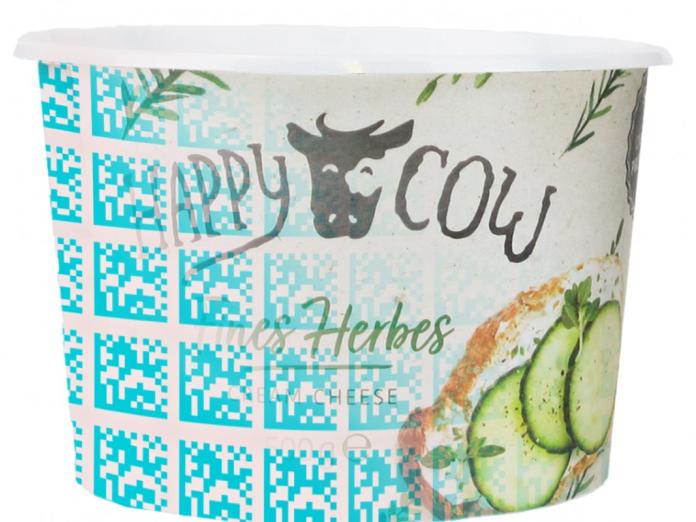Will the Future of Plastic Sorting Be Based on Digital Watermarks?

They will collaborate with the City of Copenhagen to commence the semi-industrial test phase of the pilot. With this milestone, developers move one step closer to precision identification and sorting of plastic packaging waste through digital watermarks, with the potential to revolutionise the sorting and recycling process of (plastic) packaging.
Over the next four months, a prototype sorting unit will be installed at the Amager Resource Centre (ARC) in Copenhagen, where semi-industrial trials with 125.000 pieces of packaging representing up to 260 Stock Keeping Units (SKUs) will be conducted. Engineers will be testing several parameters including the speed and accuracy of the intelligent sorting system, to ensure it can withstand the pressures of a full-scale industrial set up. If successful, brand owners and retailers will introduce digitally watermarked products commercially to the markets in Denmark, France and Germany by the first half of 2022 for in-market demonstrations and industrial scale trials.
Open Houses for interested stakeholders with a virtual tour and demonstration of the developed sorting detection unit will take place at the ARC centre on 18 October and 15 November 2021. Interested stakeholders can register here.
What are digital watermarks?
The intelligent sorting technology relies on digital watermarks which are imperceptible codes, each the size of a postage stamp. They cover the surface of a consumer goods packaging and carry a wide range of attributes such as packaging type, material and usage. After being disposed and collected, the aim is that once the packaging enters a waste sorting facility the digital watermark can be detected and decoded by a high-resolution camera on the sorting line. The packaging is then sorted into corresponding streams, based on specified attributes (e.g. food vs. non-food). This would lead to better and more accurate sorting streams and higher quality recyclates to be channelled back into the plastic packaging value chain. This milestone marks the second year of the digital watermarks project HolyGrail 2.0 which, launched in September 2020, has grown to include over 130 participating companies and organisations from the complete packaging value chain.
“We are delighted to enter the next phase of semi-industrial testing within the Digital Watermarks Initiative together with our new partner, the Alliance to End Plastic Waste”, explains Michelle Gibbons, AIM Director General. “An initiative like this can only thrive with the wide support of different key stakeholders in terms of expertise but of course also financial support. Collaboration is the way forward to achieve the EU's circular economy goals and we are confident that this technology has the potential to drive a truly circular economy for packaging.”
“Recycling is a key pillar that must be invested in to advance a circular economy in plastic waste. The Alliance is excited to support the scaling of this project in its next phase of progress, in line with our mission to end plastic waste in the environment,” said Jacob Duer, President and CEO of the Alliance. As testing continues, we know there will be many things to solve along the way, but with strong collaboration of our public and private sector partners, I believe intelligent sorting can be a new frontier that could help dramatically improve plastic waste management.”
“The City of Copenhagen has a political ambition to become the world’s first carbon neutral capital by 2025. High quality plastic recycling that substitutes new production and reduces incineration is a key instrument to reach this goal. HolyGrail 2.0 has the potential to achieve this and we look forward to doing our part in the testing of the technology”, says Merete Kristoffersen, Head of Division, Waste and Resources, City of Copenhagen.
Timeline and test markets for (semi-) industrial tests
With the commencement of semi-industrial trials, HolyGrail 2.0 is on track to get to the exciting phase of in-market demonstrations planned for 2022:
The two machine vendors, Pellenc ST and Tomra, together with the selected digital watermarks technology provider Digimarc, develop the add-on modules for their detection sorting units, to be combined with existing NIR sorters.
Both modules will be tested during the semi-industrial phase at two different test locations that are capable of running semi-industrial trials. The first controlled tests using industrial sized equipment and the Pellenc ST/Digimarc module are scheduled for October 2021 at the ARC (Amager Resource Centre) sorting centre in Copenhagen.
Pending successful completion of the semi-industrial tests, brand owners and retailers will then bring their enhanced products commercially to the market in the three EU countries Denmark, France and Germany. During this industrial test phase, which is planned to kick-off in Q1 2022, the aim is that consumers will buy on-shelf products with digitally watermarked packaging, which after consumption will enter the waste stream. The sorting units with the detection modules developed by Pellenc ST and Tomra will be placed in 5 different locations in France and Germany, including MRFs (Materials Recovery Facility), PRFs (Plastic Recovery Facility) and recycling plants. This last phase is scheduled to run until September 2022 after which the HolyGrail 2.0 Initiative will release a final public report outlining the techno-economic analysis of the digital watermarks technology for sorting of packaging waste. A successful demonstration of the technical and economic viability of the technology would inspire more countries and waste management operators to implement this new sorting technology.
Read much more on the project’s website (link) or contact us for more information.